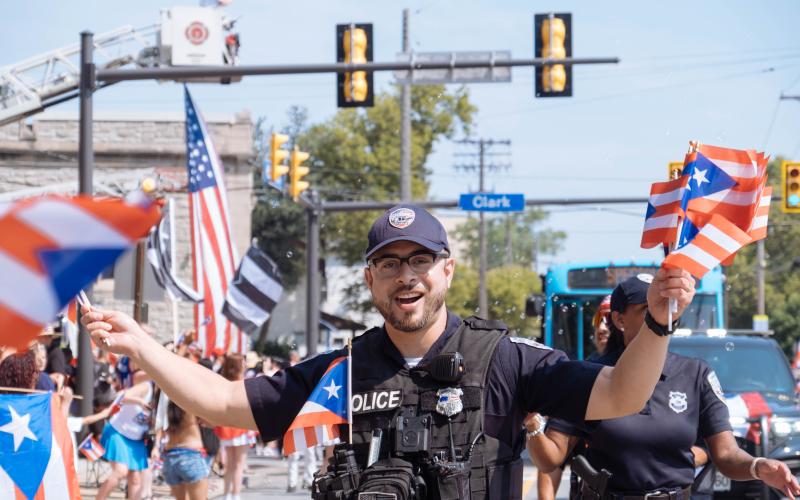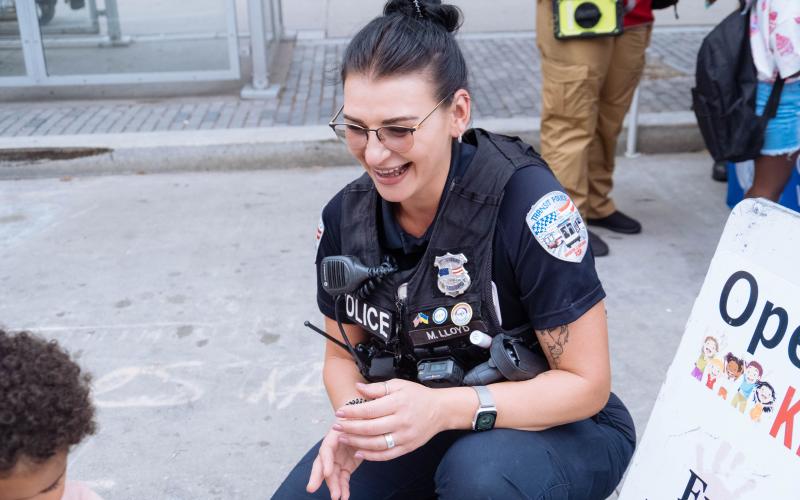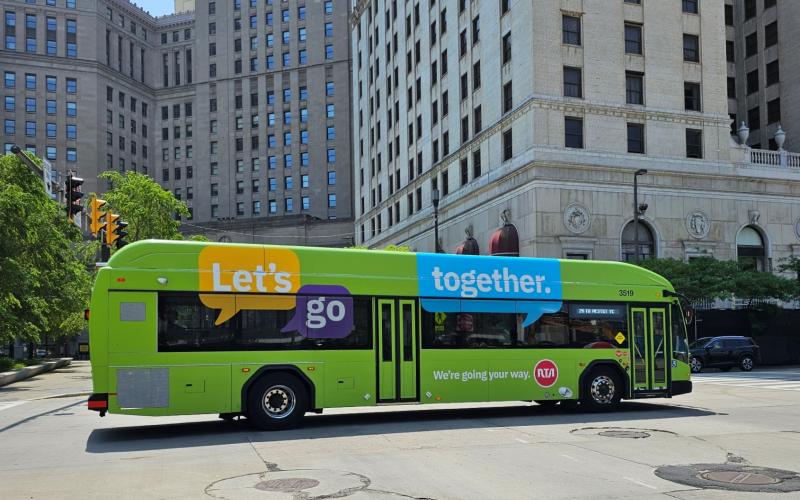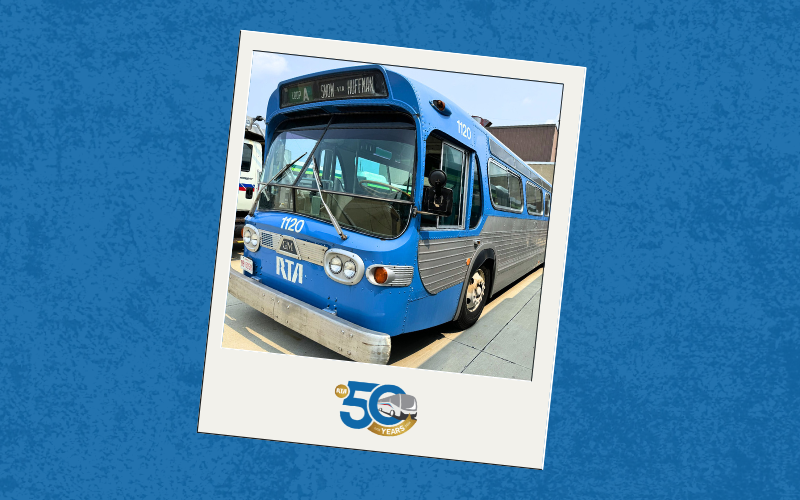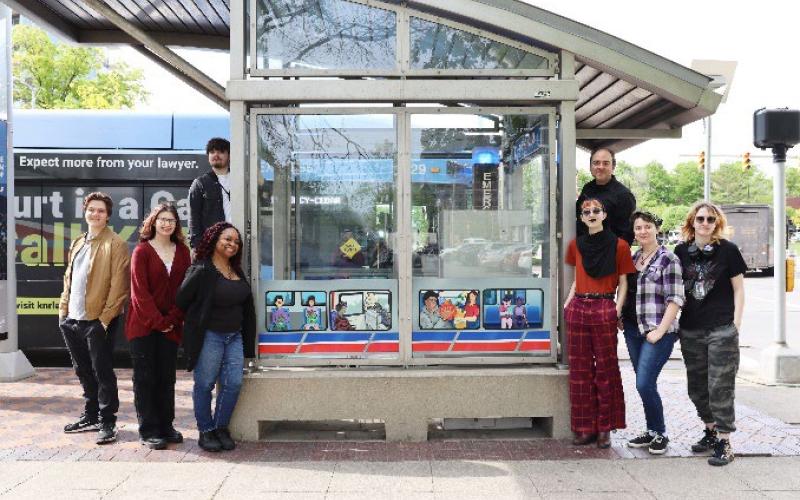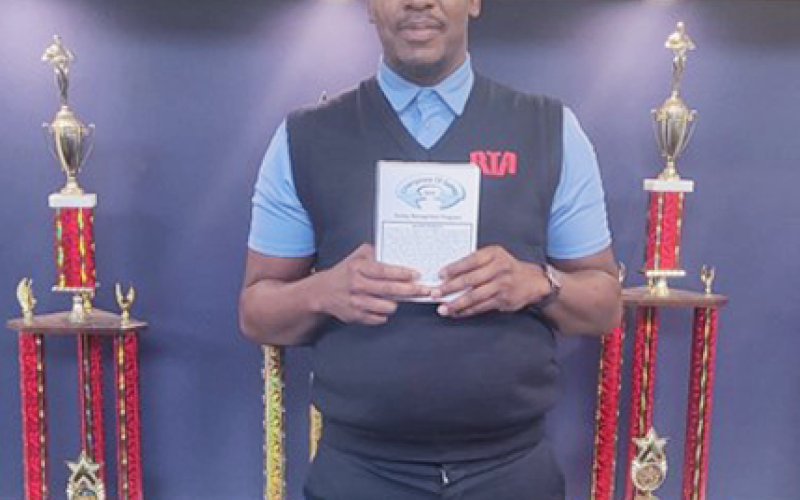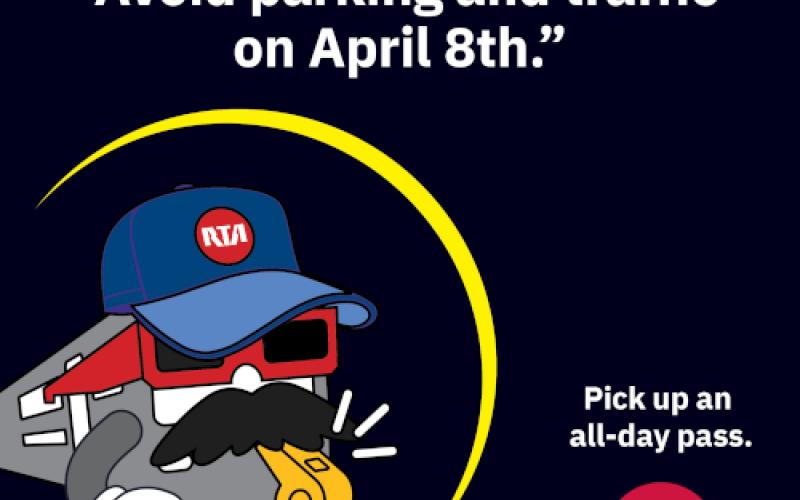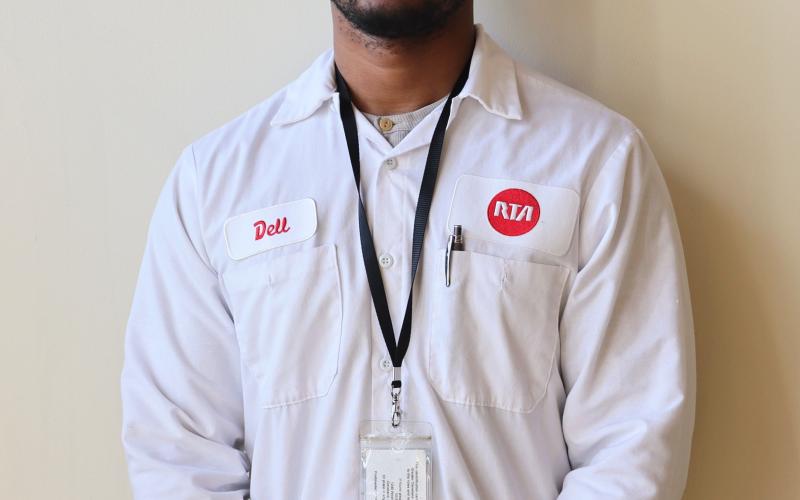Jan 28, 2020
We see it on the news every week. Somebody disappears- maybe for a short time, maybe for a long time, maybe forever. Often, they are victims of human trafficking- modern day slavery of global proportions. RTA and other public transit agencies are committed to raising awareness of this problem, and joining in the fight to eliminate it.
So what is human trafficking? Basically, it is modern day slavery- a crime and civil rights abuse that affects millions of men, women and children around the world. Force, fraud, or coercion is used to compel someone into labor servitude or sexual exploitation. Every minor that is exploited for sex is a victim of human trafficking. You don’t always see it happening. But hopefully, we can begin to recognize the signs and symptoms in order to help stop it.
Human trafficking happens all over the world, but is also happening right here in Cleveland. Just a few short years ago, a nationwide case of missing persons was solved with the escape of Amanda Berry, Gina DeJesus, and Michelle Knight. These ladies are pulling from their horrendous experience to help make sure others don’t fall victim to the same thing. Then, a few years later, local teen Aliana DeFreeze became a victim of horrendous circumstance.
You may think that Cleveland isn’t a hot spot for trafficking. With its easy access to I-90, a cross-country truck route, and other transportation options, there is more trafficking than we would all like to believe. RTA is taking a stand against human trafficking on our system and we have trained all 2,000 bus and rail operators and all Transit Police officers to look for the signs of those who are victims.
In 2018 others began to take notice. Representatives from Ukraine and Oman have visited the United States, and met with Cleveland’s RTA specifically, to learn more about how to combat this worldwide issue. Working together, we can create a safer place for all.
Building on the Department of Homeland Security’s “See Something, Say Something” campaign, RTA has also introduced a safe and discreet way to notify Transit Police Dispatchers of suspicious activity via text, picture or video message. This program is called 575-EYES; texting this number will initiate a live chat session with Transit Police dispatchers and allow for direct communication and engagement. We are confident that this technology, along with our upgraded radio and communications systems (2020) will allow better access for Transit Police to recover potential victims, as well as create an overall safer RTA system for customers and employees.
RTA has taken additional measures to train staff and utilize available resources to help identify and recover human trafficking victims.
In 2019, RTA became part of a group called the Polaris Project. This is an organization based in Washington, D.C. that creates and maintains a human trafficking database. Tips from geographical areas are entered into the database and pushed out to law enforcement groups in those designated regions. RTA’s Transit Police department is a part of the Northeast Ohio region, and we are the first transit agency to become a part of this program. It is a collaborative effort between national, regional and local law enforcement groups to follow up on these emailed tips related to Cleveland, Ohio and public transportation. The Polaris Project serves victims and survivors through the National Human Trafficking Hotline, builds a dataset that illuminates how human trafficking works in real-time, and turns this knowledge into a targeted systems-level strategy to disrupt and prevent further human trafficking. In a recent study conducted by the Polaris Project, transit hubs are of particular interest to traffickers, as they attract runaways and homeless youths. Since youths often have no place else to go, transit can serve as a last resort shelter. According to the report, 63% of surveyed trafficking survivors mentioned using some form of mass transit, with 33% using buses and 19% using commuter rail.
Additionally, we also began utilizing a database called Thorn’s Spotlight, which is an anti-human trafficking website started by Ashton Kutcher and Demi Moore. Law enforcement uses this database to track the web and dark web to search for victims based on a variety of descriptors, such as physical description, name, city, or nickname. Technology, in general, has made it easier than ever to exploit and harm children. Victims of human trafficking are often advertised online, perpetuating the cycle of trafficking which affects our most vulnerable populations. In an effort to strategically inform technology initiatives for sex trafficking, Thorn has partnered with other agencies to survey survivors about their experiences. These surveys help to focus on understanding the role of technology in a victim’s recruitment, time in trafficking, and exit from it. The results from the survey have provided insight into better ways to target these traffickers and prevent them from continuing their “business”. Thorn is the first engineering and data science team focused on developing new technologies to combat online child sexual abuse. They are able to quickly assess whether new technologies can be repurposed to protect children from exploitation by accelerating victim identification, equipping platforms and law enforcement, and empowering the public. More information on the organization and the incredible work they are doing can be found at www.thorn.org.
When large scale events come to town, the opportunity for trafficking is much higher. Human trafficking task forces stage in hotels, check Craigslist and other websites for chatter on travel patterns and movement of traffickers selling their victims. In recent years, Cleveland has hosted many events including the Republican National Convention and the All Star Game. During All Star Weekend in 2019, two sting operations led to the arrest of 50 men, most of them local. Dubbed “Operation Triple Play”, law enforcement agents were able to track down these ‘johns’ who were soliciting women from the internet. But it doesn’t always take a large event to produce traffickers. In early 2020, Summit, Portage and Cuyahoga Counties all had multiple arrests in human trafficking stings. The problem is on-going, and we need your vigilance to help stop it.
As we all know, time is critical in investigations for missing children or endangered adults. Currently, the process for accessing video onboard vehicles is a long and labor-intensive process. Tips received to Transit Police usually occur after something bad has already happened, for example, when Aliana DeFreeze didn’t make it to school. This makes things significantly more difficult for officers to research and solve quickly. Once an investigation begins, officers need to figure out which route was involved. For example, if the child went missing due to suspicious activity in a specific neighborhood, officers would need to contact Service Quality and Dispatchers to identify the routes in that area, at that time, and then narrow down these parameters to which specific blocks and buses could potentially be involved. Once this information is identified, officers meet the coach on the road and need to download video direct from the bus. This video typically downloads at a one minute to one minute ratio, which can be quite long depending on the span of time requested. Once the video is download, it needs to be reviewed. Potentially, they may find nothing in this video and need to start the process over with other coaches. In the event that they do receive an image from the suspicious activity, that’s all they get. Then the real investigation begins. As you can see, this is a very time consuming process. With our new radio systems and updated communication equipment, officers will soon be able to instantly geo-locate buses and access information and video feeds in real time. This would dramatically reduce downtime and allow for a more timely recovery.
RTA has recently applied for a federal grant to use these funds for future upgrades of our messaging systems on board vehicles. An opportunity to push out messages and photos of missing children or endangered adults in real-time will allow us to leverage assets in the community for their help in the countywide collaboration of recovery. RTA has also been diligently working to upgrade all radio and communications systems throughout the Authority. Using our existing technology, as well as this upgraded radio system, we are able to increase the capability for successful recovery of victims.
RTA works closely with the Collaborative to End Human Trafficking on all messaging and active cases. For more information on how you can get involved, check out https://www.collabtoendht.org/.


